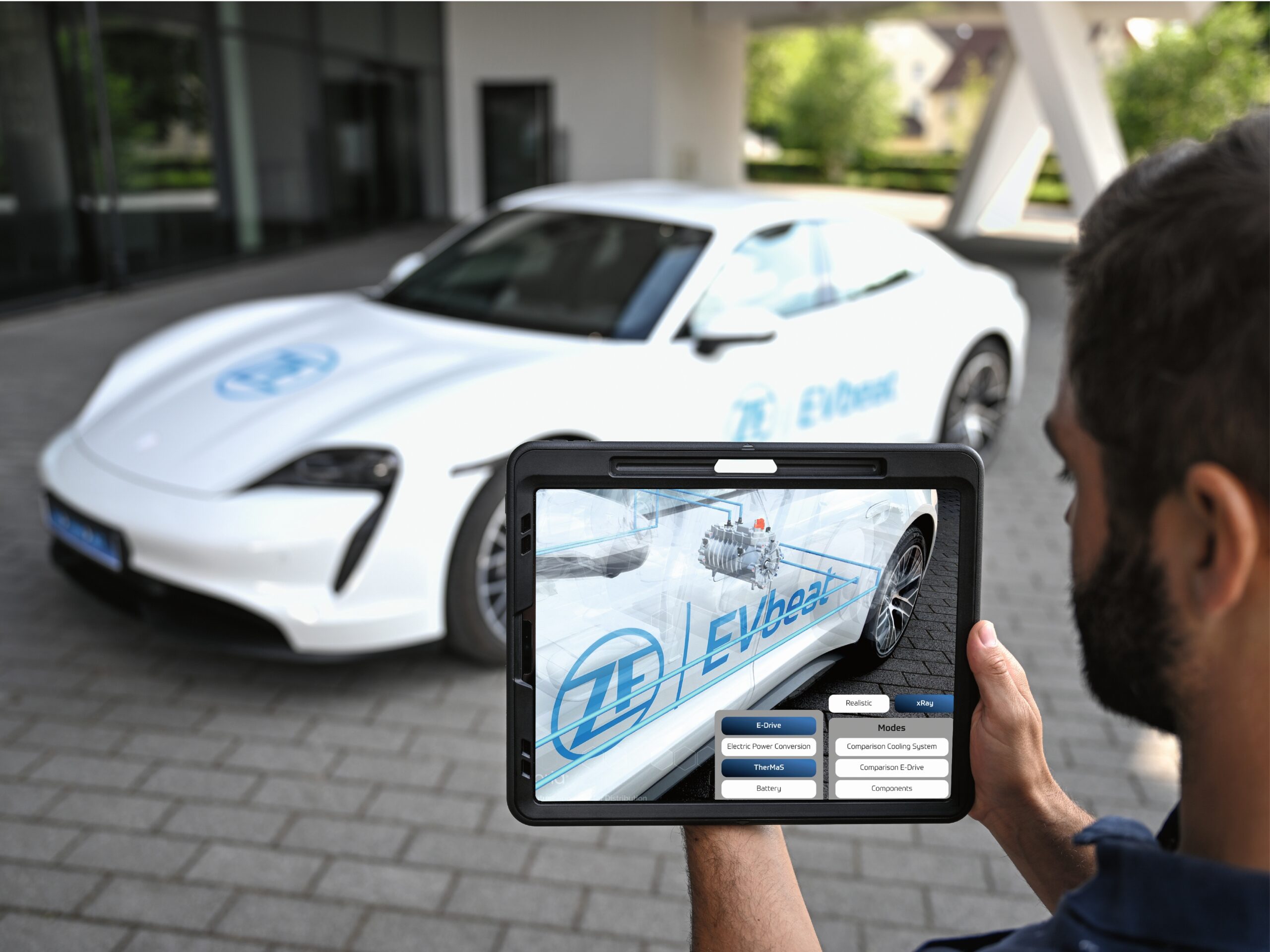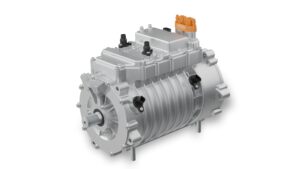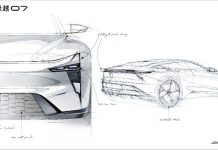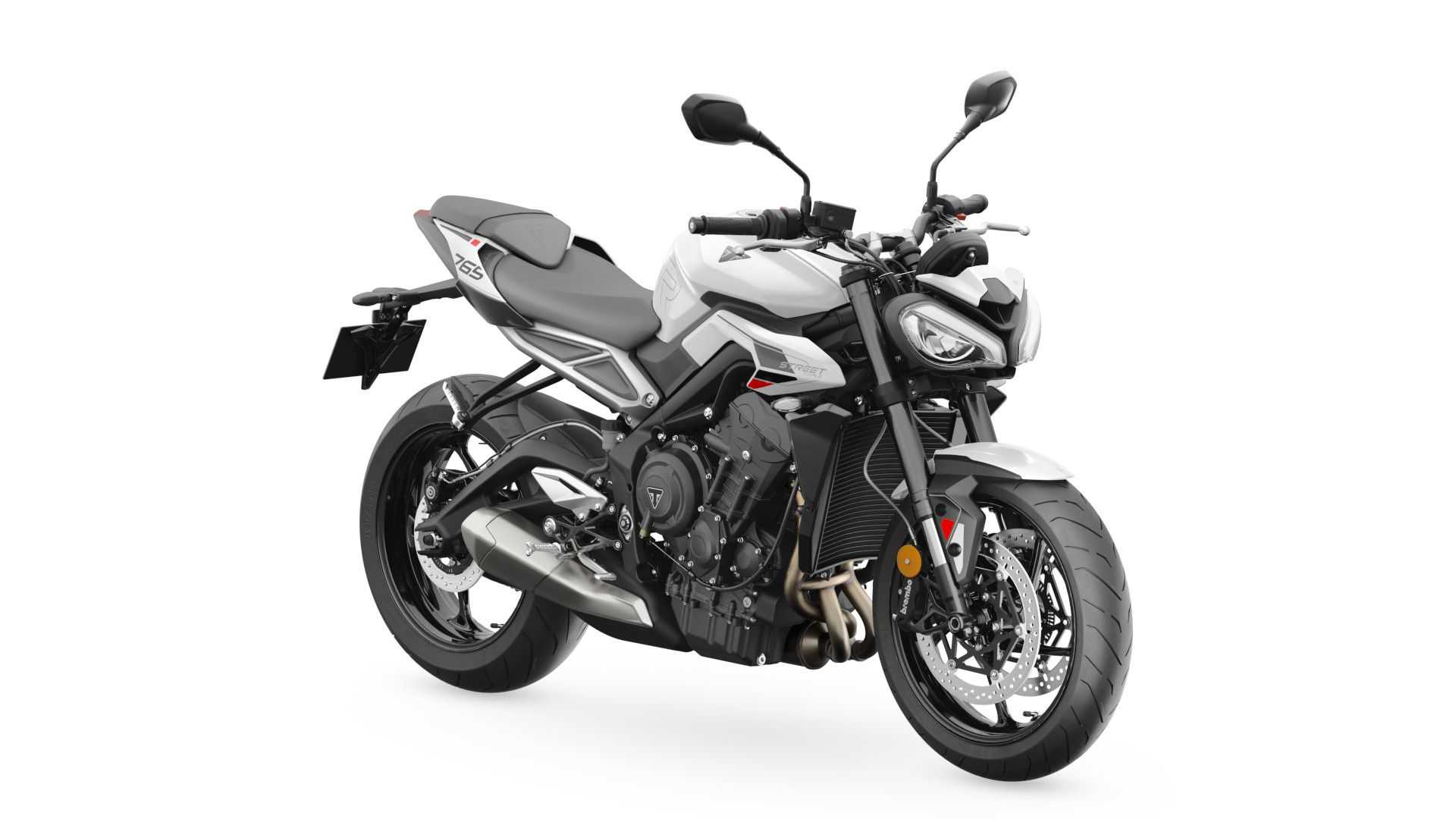
ZF, a German automotive supplier, has unveiled its latest electric vehicle (EV) technologies in a concept car based on the Porsche Taycan. The concept car, called EVBeat, showcases ZF’s EVSys800 800-volt electric drive and a proprietary central thermal management system. ZF designed these systems focusing on compactness, low weight, and high efficiency in real-world operation.
Lightweight
The EVSys800 drivetrain weighs only 74 kilograms, making it approximately 40 kilograms lighter than ZF’s latest 800-volt production drivetrain. This weight reduction contributes to the overall weight reduction of the concept car. The drivetrain consists of a silicon carbide power electronics unit, an electric motor, and a reduction gear.
The electric motor offers a continuous power output of 206 kW and a peak power output of 275 kW, with a torque density of 70 Newton meters per kilogram of weight. The concept vehicle can deliver a maximum torque of 5,200 Newton meters at the rear axle.
ZF achieved these advancements through a new cooling concept and innovative winding technology in the electric motor. The drivetrain saves 50 millimetres in width due to the compact reduction gearbox and the patented ‘Braided Winding,’ enabling a 10% reduction in installation space. ZF also fundamentally redesigned the inverter of the electric drivetrain, resulting in improvements in electromagnetic compatibility, power modules, and capacitors.

Electric vehicles
The central thermal management system, called TherMaS, is the first system designed by ZF for electric vehicles. It utilizes a centralized unit and software to control thermal processes for the propulsion system, battery, and passenger compartment. The system significantly reduces space requirements and weight compared to conventional cooling and heating systems. The integration of an 800-volt heat pump reduces energy consumption.
TherMaS consists of three designated circuits, with a small, hermetically sealed refrigerant circuit at its core. Propane serves as the refrigerant, while two separate coolant circuits containing frost-resistant water regulate the temperature of the electric machine and the power and charging electronics.
The software adjusts cooling performance based on demand and enables higher continuous power output from the electric machine. ZF claims that the overall thermal management system increases the range of the EVBeat by up to a third in demanding winter conditions.
Cloud-based software
ZF has also developed a cloud-based drive software for the modified Taycan. The powertrain software connects all vehicle systems and establishes a connection to the cloud. By analyzing individual driving profiles and leveraging cloud-based artificial intelligence, the software adapts to driver behaviour and enhances overall performance. The software keeps the thermal operating points of the system in the optimum range, improving the efficiency of the electric motor.
They plan to launch the first technologies of their new driveline on the market in 2026. The company aims to offer an efficient overall system that meets customers’ efficiency, performance, and cost requirements.
Pros of ZF’s latest EV technologies showcased in the concept car:
- Compactness and Lightweight: ZF’s EVSys800 drivetrain is designed for maximum compactness and low weight, contributing to overall weight reduction in the concept car. This can result in improved performance, agility, and energy efficiency.
- High Efficiency: The drivetrain and central thermal management system are engineered for maximum efficiency in real-world operation. This can lead to increased range and reduced energy consumption, enhancing the overall sustainability of the vehicle.
- Innovative Cooling Technology: ZF’s cooling concept and winding technology in the electric motor enable better thermal management. The efficient cooling system optimizes the performance and longevity of the drivetrain components.
- Modular System: The EVSys800 is a modular system designed for passenger vehicles, providing flexibility for integrating various EV platforms. This modularity can simplify production and potentially reduce costs.
- Cloud-Based Drive Software: The cloud-based drive software developed by ZF analyzes individual driving profiles and leverages artificial intelligence to adapt to driver behaviour. This can enhance performance, optimize thermal operating points, and improve the driving experience.
Cons of ZF’s latest EV technologies showcased in the concept car:
- Market Launch Timing: The market launch of ZF’s new driveline technologies is set for 2026. This means that the showcased technologies are not immediately available, and it may take some time before they are commercially accessible to consumers.
- Limited Information: The information about ZF’s technologies in the concept car is relatively limited. Detailed specifications, performance data, and potential drawbacks or limitations of the systems are not explicitly mentioned, making it difficult to assess their full capabilities and potential shortcomings.
- Uncertainty of Real-World Performance: While ZF claims high efficiency and improved performance, these technologies’ real-world performance and reliability can only be confirmed through extensive testing and evaluation. How well these systems perform in various driving conditions and over extended periods remains to be seen.
- Availability to General Consumers: As an automotive supplier, automakers typically integrate ZF’s technologies into vehicles rather than being directly available to general consumers. Automakers’ adoption of these technologies and their incorporation into future electric vehicles will depend on various factors, including cost, compatibility, and market demand.
- Cost Considerations: The cost implications of ZF’s technologies are not explicitly discussed. It’s important to consider the potential impact on the overall cost of the vehicle, as advanced drivetrain technologies and thermal management systems could potentially increase the price of the vehicles in which they are implemented.
Conclusion
ZF’s latest electric vehicle (EV) technologies showcased in the concept car demonstrate several promising advancements. The compact and lightweight design of the EVSys800 drivetrain, along with the innovative cooling technology and winding technology in the electric motor, offers potential benefits such as improved performance, energy efficiency, and thermal management.
Range
The central thermal management system, TherMaS, addresses the temperature regulation needs of the propulsion system, battery, and passenger compartment, reducing space requirements and weight compared to traditional cooling and heating systems. This system, combined with an 800-volt heat pump, can enhance energy efficiency and increase the range of the EVBeat concept car, particularly in demanding winter conditions.
ZF’s cloud-based drive software adds another layer of sophistication by analyzing individual driving profiles and leveraging artificial intelligence to optimize performance and maintain optimal thermal operating points. This software aims to enhance the electric motor’s overall driving experience and efficiency.
Market Launch 2026
However, it’s important to note that the showcased technologies are scheduled for market launch in 2026, which means they are not immediately available to consumers. The provided information does not explicitly discuss the full capabilities, limitations, and cost implications of these technologies.
In conclusion, ZF’s latest EV technologies exhibit potential in compactness, lightweight design, high efficiency, and advanced thermal management. However, further evaluation and real-world testing are necessary to fully assess their performance, reliability, and commercial viability.




































